Selecting the right medical billing company is critical for improving your revenue cycle and ensuring seamless operations. With the medical billing industry becoming more competitive and technologically advanced, it’s vital to understand what sets the best providers apart.
Why is the Medical Billing Industry Competitive?
High Demand for Outsourcing Services
Outsourcing billing services has grown tremendously as healthcare providers seek ways to improve efficiency. According to a recent report, the global medical billing outsourcing market is expected to grow at a CAGR of 11.3% from 2023 to 2030, highlighting its increasing adoption.
How Healthcare Growth Fuels the Market
The expanding healthcare industry contributes significantly to the demand for medical billing companies. With more than 931,000 physicians actively practicing in the U.S., the need for efficient billing services is growing rapidly.
The Role of Technology in Medical Billing
Technological advancements like EHRs, telemedicine, and AI-based automation streamline billing processes. These tools improve accuracy and scalability, making them essential for any modern medical billing company.
| Key Technology Trends in Medical Billing | Benefits |
|---|---|
| AI and Automation | Reduces human errors and increases speed |
| Data Analytics | Identifies revenue trends and denial causes |
| Telemedicine Integration | Supports remote billing for virtual care |
Challenges in the Medical Billing Industry
Intense Market Competition
With over 3,000 medical billing companies in the U.S., competition is fierce. Each company must find ways to differentiate itself through unique value propositions.
Complex Regulatory Changes
The healthcare landscape is constantly evolving. Updates to ICD-10 codes and value-based care models create challenges for billing companies. Staying compliant is vital for success.
Data Security and Compliance
Handling sensitive patient data comes with significant risks. A recent survey found that 93% of healthcare organizations have experienced a data breach, emphasizing the importance of robust security systems.
Opportunities for Medical Billing Companies
Expanding Services for Revenue Growth
Diversifying into services like insurance verification, patient collections, and A/R management creates additional revenue streams. Offering specialized coding for fields like dental or chiropractic care enhances market reach.
| Service Expansion Ideas | Potential Impact |
|---|---|
| Insurance Verification | Faster claims approval |
| Accounts Receivable (A/R) Clearance | Improved cash flow |
| Population Health Analytics | Better patient outcomes |
Leveraging Population Health Analytics
Analyzing large datasets helps billing companies provide actionable insights to healthcare providers. Identifying trends in chronic conditions improves patient care while enhancing revenue.
How to Choose the Best Medical Billing Company
Expertise in Specialty Areas
Your chosen medical billing company should specialize in your field. Practices in orthopedics or dermatology require coding experts familiar with those specialties. Working with specialists ensures accurate claims submissions.
| Common Specialty Billing Requirements | Key Billing Codes | Challenges |
|---|---|---|
| Cardiology | CPT 93010, ICD-10 I51.9 | Complex diagnostic codes |
| Pediatrics | CPT 99381-99385 | Frequent code updates |
| Mental Health | CPT 96127, ICD-10 F32.9 | Behavioral nuances |
Technology and Innovation
A top medical billing company uses advanced tools to optimize processes. Features like AI-driven coding validation and real-time claim tracking improve both speed and accuracy.
Compliance and Security Standards
Always ensure the medical billing company follows regulations like HIPAA. Data encryption and regular audits safeguard sensitive information and provide peace of mind.
Transparent Reporting Capabilities
Clear, detailed reporting is vital for tracking your practice’s financial health. Companies offering customized dashboards and regular updates provide better insights for decision-making.
Leveraging Opportunities in Hospital Revenue Cycle Management
Resolving A/R Backlogs in Hospitals
Clearing accounts receivable backlogs can significantly improve cash flow. Offering ongoing A/R management services helps hospitals prevent future backlogs.
Specialized Coding Services for Better Accuracy
A medical billing company providing ICD-10, CPT, and E/M coding services ensures accurate claims and reduces denials. Coding compliance improves client satisfaction and financial performance.
“Accurate coding is the cornerstone of successful revenue cycle management.”– Emily Carter, Medical Coder
Reporting and Analytics as a Growth Strategy
Delivering Actionable Insights
Billing companies can offer interactive dashboards that showcase financial performance. Detailed reports help providers identify trends, resolve issues, and make data-driven decisions.
| KPI | Why It Matters |
|---|---|
| Denial Rates | Measures claim rejections |
| Average Days in A/R | Indicates payment speed |
| Net Collection Rate | Shows revenue efficiency |
Conclusion
Choosing the right medical billing company is crucial for your practice’s success. By focusing on technology, compliance, and tailored services, you can partner with a company that improves revenue cycles, reduces claim denials, and enhances patient care. The right choice allows you to focus on what matters most—your patients.


